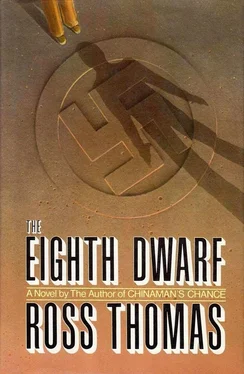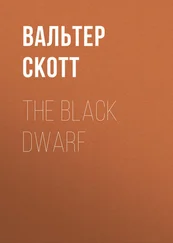You want them to catch you, fool, his mocking self told him. “Well, yes, naturally,” Oppenheimer said aloud. “I’ve always known that.”
The Opel Motor Works at Russelsheim, about halfway between Frankfurt and Mainz, covered five hundred acres and at one time had been the largest automobile-manufacturing plant in Europe. At its peak it had turned out nearly 5,000 cars and trucks a month and had employed some 24,000 workers.
Both the RAF and the U.S. Army Air Corps had bombed it by day and by night, but despite their combined efforts the Opel plant was still operating at 40 percent of capacity at the war’s end. Now it was back in operation, after a fashion, and supervising the entire plant and its 4,137 German workers was Lt. Jack Fallon, who before the war had been a shop steward for a United Auto Workers (CIO) local at the Ford plant in Dearborn, Michigan. To help him run his new empire, the Military Government had allotted him two enlisted men, a three-quarter-ton truck with a trailer, and an interpreter.
It was the interpreter whom the CID Lieutenant wanted to see.
“Jesus, you don’t think he’s a Nazi or something, do you?” Fallon said. “I’Ve already lost two interpreters because somebody claimed they were Nazis. Hell, this guy couldn’t be a Nazi. He was in a concentration camp.”
“It’s just routine,” Kurt Oppenheimer said.
“Okay, I’ll see if I can find him for you.”
Fallon turned in his swivel chair and yelled through the open door, “Hey, Little, where the hell’s Wiese got off to?”
“Beats the shit out of me, Lieutenant,” Cpl. Virgil Little yelled back.
“Well, go find the fucker and get his ass in here.”
“Yes, sir.”
Fallon leaned back in his chair. “It might take a while,” he said. “This is one hell of a big plant”
“That’s all right,” Oppenheimer said.
“They keeping you guys busy?”
“Fairly so. How about you?”
Fallon sighed. “It’s a mess. You know who I get orders from? I get orders from G-Five in Frankfurt. Except that sometimes their orders are just the opposite of the ones I get from G-Four — that’s production control. And before I can turn around, here comes a new set of orders in — this time from OMGUS up in Berlin. And if that wasn’t enough, those G-Five fuckers down at Seventh Army in Heidelberg think they’ve got to put their two cents’ worth in. I don’t know what the hell I’m doing half the time.”
“Sounds rough,” Oppenheimer said, producing a pack of Camels, and offered them to Fallon.
Fallon shook his head. “Let me give you an example of what I mean.” He looked hopefully at Oppenheimer and was encouraged by the sympathetic nod that he got.
“What we’re trying to do here is turn out trucks — small ones, you know, three-quarter-ton jobs. But in the meantime we’re also supposed to be turning out radiators and carburetors, and these we ship off to the D-B plant at Mannheim.”
“D-B?” Oppenheimer said.
“Daimler-Benz.”
“Oh.”
“Okay, swell, we turn out four hundred and sixteen radiators and six hundred and two carburetors, right?”
“Right.”
“Then they shut down the fucking gas on us. Well, we get our gas from Darmstadt, and Darmstadt has to have coal before it can turn out gas. But Darmstadt depends on getting its coal from somewhere up in the Ruhr, in the British Zone. Well, they’re not mining any coal up in the Ruhr, or if they are, those British fuckers are keeping it for themselves. So D-B is screaming for its radiators and its carbs and I’m screaming back that I can’t turn ’em out without gas and I can’t get the gas unless Darmstadt gets the coal. So you know what they tell me to do?”
“What?”
“Improvise.”
“Jesus.”
“So here’s what I do. I take one of those trucks that we turned out and I write it off. I mean the records on it just disappear. It was never produced, if you know what I mean? Then I start nosing around the black market and I find some guy who’s got coal. You can find it if you know where to look. So I say to this guy, ‘How’d you like a brand-new truck?’ Of course, he wants to know what the catch is. Well, the catch is that he’s gotta use the truck to haul enough coal over to Darmstadt to provide me with gas for three weeks.”
“That’s goddamned ingenious,” Oppenheimer said.
Fallon ran his hand through his short brown hair. He was a wiry man, not too tall, a little past thirty, who wore a look of perpetual exasperation on a face that was too young to have so many lines in it.
“Well, hell, I don’t know if it’s ingenious or not. All I know is that I’m going home next month — if they don’t court-martial me first I tell you one thing, though. I’ve learned some tricks here that’re gonna set those Ford fuckers back on their ass if they don’t watch out.” He smiled happily at the pleasing prospect, and most of the exasperated look went away.
Cpl. Virgil Little came into the office a few minutes later without knocking, followed by a German civilian dressed in a brown suit and black shoes. Corporal Little was about twenty, with a thinker’s face and a scholar’s stoop. The German civilian was more than twice his age, with a round face, small blue eyes, and a thin-lipped, unforgiving mouth that separated a tiny chin from a rather large nose. What remained of his hair was a dull taupe shade.
“Here he is, Lieutenant” Corporal Little said. “Anything else?”
Before Fallon could reply, Oppenheimer said, “I’d like the Corporal to remain, Lieutenant. All right?”
Fallon shrugged. “Okay.”
“And the other enlisted man. Would you have him come in too?”
“Tell Baxter to come in,” Fallon said.
“Hey, Baxter,” Corporal Little called through the door. “The Lieutenant wants you.”
A big, sleepy-looking youth of about nineteen shambled in and looked around. He was Private Louis Baxter, whose one passion in life was automobiles. Working in a plant where they were actually manufactured was for him an experience of unending joy.
“Would you close the door, please?” Oppenheimer said.
Baxter turned and closed the door, then turned back.
“Private, I think you should sit over there,” Oppenheimer said, indicating a chair, “and you, Corporal, over there.”
Baxter sat where he was told, but Corporal Little looked first at Lieutenant Fallon, who frowned slightly, then nodded. Corporal Little sat down.
That left only the German standing in the center of the large office. He looked calmly at Oppenheimer, smiled slightly, then looked back at Fallon.
“May I ask the purpose of this meeting, Lieutenant?”
Fallon nodded at Oppenheimer. “The Lieutenant here will tell you.”
The German nodded, looked at Oppenheimer, nodded again almost enough for it to be a slight bow, and said, “Please?”
“Your name?” Oppenheimer said in a bored voice.
“Wiese. Joachim Wiese.”
“Your age?”
“Forty-three.”
“Place of birth?”
“Leipzig.”
“Occupation?”
“Interpreter.”
“Occupation before the war?”
“Teacher.”
“What subjects did you teach?”
“English, French, and Latin.”
Oppenheimer stared at Wiese for a long moment, smiled, took out the pack of Camels, rose, and offered the German one. Wiese relaxed visibly and accepted the cigarette. Using his Zippo lighter, Oppenheimer lit the German’s cigarette, smiled again charmingly, and said, “You’re lying.”
“I do not lie,” the German said stiffly as his face turned bright pink.
“What the hell’s this all about?” Lieutenant Fallon said.
Oppenheimer went back to his chair and sat down. He reached into his back pocket as if for a handkerchief and brought out the Walther instead.
Читать дальше












